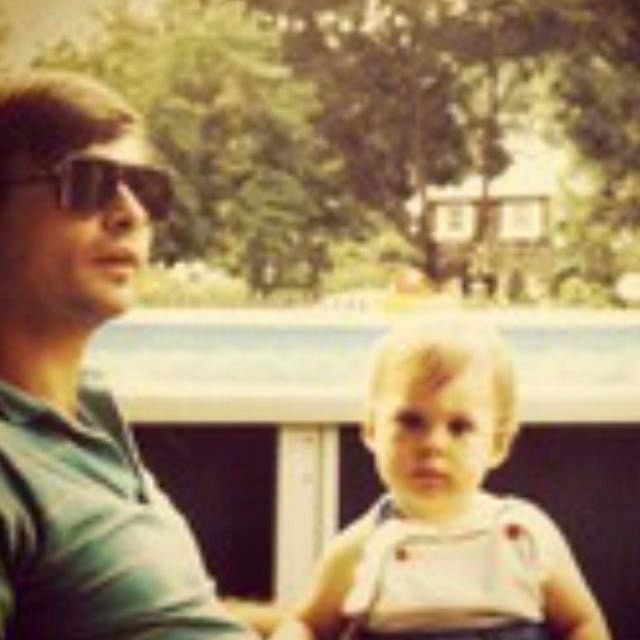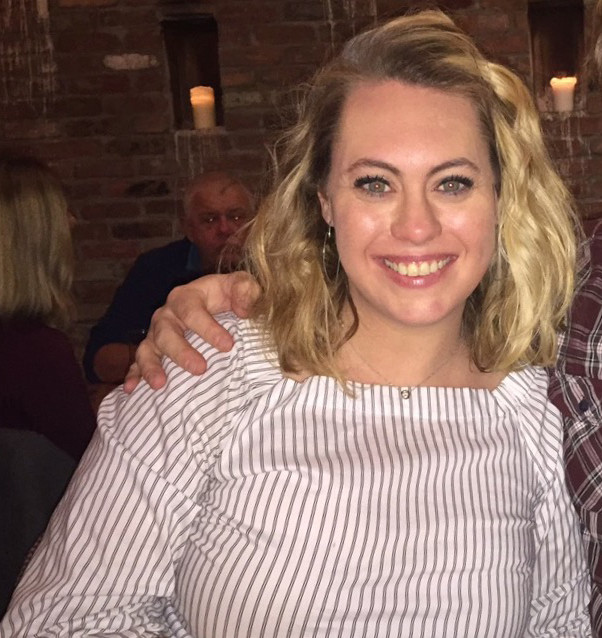Long Beach resident authors pro-Islam essay
Teacher who lost father on 9/11 writes, ‘Muslims did not kill my father’
Posted

Amy Mastrocinque, a Long Island teacher and Long Beach resident, shared her thoughts about Islam from the perspective of someone who lost her father on Sept. 11, 2001.
Courtesy Amy Mastrocinque
Amy Mastrocinque was in Dunkin’ Donuts, waiting for her tea on her way to work, when she overheard two men talking.
“So Trump banned Muslims. Good, maybe now we’ll feel safe,” they said. “You know all those liberals will be crying about racism. Well, maybe if they knew someone who was killed on 9/11 or something, they would realize it’s what we have to do. Without Muslims, those Americans would have never been killed.”
Contemplating the executive order President Trump signed last month banning travel to the U.S. from seven Muslim-majority countries, Mastrocinque, a Long Island teacher and Long Beach resident, shared her thoughts in an essay later that day that she posted on her blog. It received about 6,000 views.
“If given another chance, I would have responded,” she wrote. But she was so taken aback by their conversation that she froze, and then left the store.
The essay, she said, is what she wished she could have said to them. She started by writing that she did lose someone in the attacks on the World Trade Center — her father, Rudolph Mastrocinque. She was 15 when he died.
“Muslims did not kill my father,” she wrote. “Psychosis killed my father. Ignorance killed my father. Hate, fear, anger and frustration killed my father. Muslims did not.”
She addressed misconceptions some people have about those who practice Islam. She went on to say that although the people responsible for 9/11 claimed to be Muslim, they really were not. “They were cowardly people who hid under the guise of Islam.”
In the United States, these misconceptions have circulated around Muslim people, which promoted prejudice and created a vicious cycle. A stigma formed, deemed “Islamophobia.”
Radicals — a smaller, extremist population that does not represent the whole — can exist in any group of people. Radical Muslims do not practice what their holy book preaches, Mastrocinque maintained. They commit crimes in the name of Islam and give it a bad reputation.
Because religion is abstract, it is easily interpretable. “You can interpret a religion in any type of way,” she said in an interview with the Herald. “You can interpret it loosely … or you can be really strict with it.”
Mastrocinque said she believes education is the way to address the issue. “I just think that you need to educate yourself,” she said. “You can’t blame a whole group for one thing.”
She attributed her beliefs to having been exposed to Muslim people throughout her life. Many of her friends and students practice Islam, so she understood when, for example, they were tired during Ramadan, because they hadn’t eaten all day.
Fear is a key to ignorance, she said. “People are scared of what they don’t know. If you don’t know anybody who’s Muslim, you’re going to believe what the media or other people are telling you.”
Because of her extensive interaction with Muslim people, she felt compelled to try to understand their faith. She was inspired to study religion when she attended Colgate University and read the Quran. “It’s very similar to the Old and New Testament because it’s all born out of the Abrahamic tradition,” she said. “They have the same stories, and they have the same lessons. So to say that it’s so different — that’s not at all how it is.”
Amy’s brother, Peter Mastrocinque, called her “some kind of special” in a Facebook post reacting to her essay. “I’d say ‘wow,’ but knowing her as well as I do, I’m not at all surprised,” he wrote. “This is exactly what I know to expect from her. Proud as ever.”
Ultimately, Amy said, it’s not religion that is to blame for cultural divisions — and horrific events like 9/11. “People are unstable. That’s just the nature of people,” she said. “It’s not a religion that makes somebody unstable.”
Report an inappropriate comment
Comments

 39.0°,
Fair
39.0°,
Fair 




